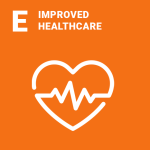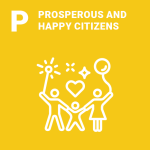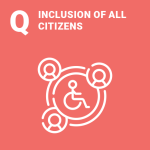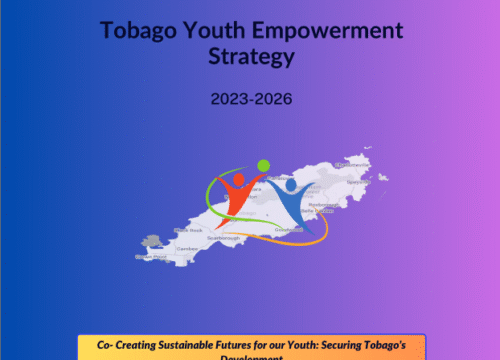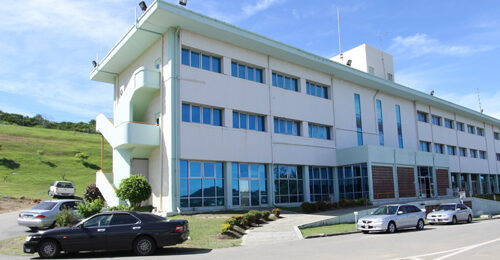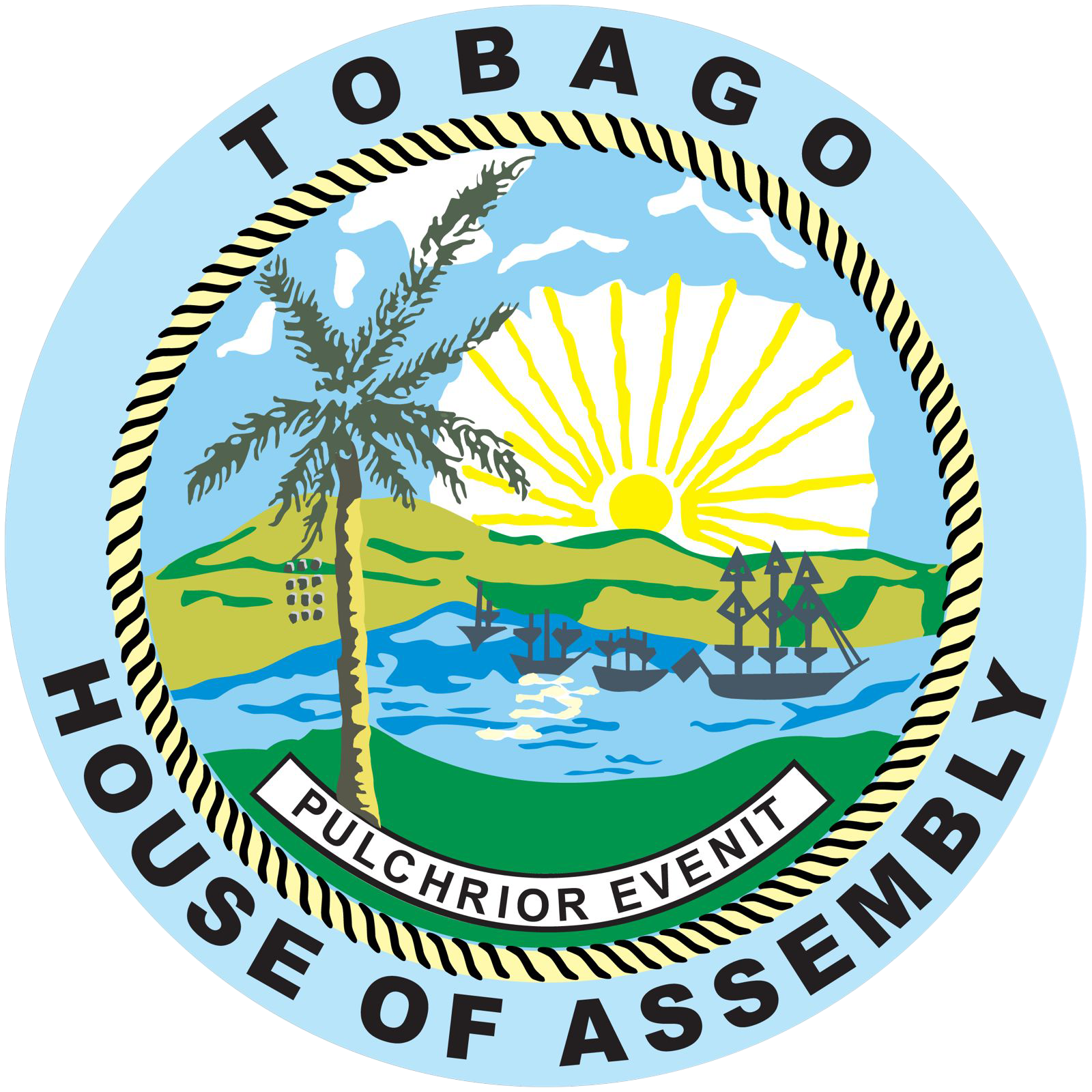DEVELOPMENT AGENDA PRIORITY P: Spiritually fulfilled, prosperous, and happy citizens.
About the
PriorityPerformance
benchmarksMajor
ConcernsSelected
Focus
AreasTargets &
IndicatorsPolicies, Plans
& ProgrammesProjects
PriorityPerformance
benchmarksMajor
ConcernsSelected
Focus
AreasTargets &
IndicatorsPolicies, Plans
& ProgrammesProjects
About priority P
- Happiness remains a noble pursuit for all human beings. However, whether happiness is derived from spending time with family at home, enjoying a harvest festival with loved ones, attending church, engaging in organized or recreational sports, participating in a cultural festival, or taking an early morning sea bath, life seems more fulfilling when people are happy.
- Happy citizens tend to be more productive, spiritually fulfilled, mindful, healthy, and satisfied.
- Although the Tobago House of Assembly cannot institutionalize happiness, it can support societal institutions, such as the family, church, schools, and community organizations, through which citizens can find additional meaning and purpose in their lives.
- Focus on priority P will ensure that the THA supports the spiritual fulfillment and happiness of Tobago citizens and residents by developing policy solutions that address the physical, emotional, spiritual and economic needs of individuals, households, and communities.
Primary performance benchmark: Priority P
-
Benchmark: On a scale of ten, achieve a Happiness Index Score of at least eight by 2035 and at least nine by 2045.
-
Indicator of progress/success: Happiness Index Score year-over-year.
-
Benchmark country: Finland.
Major concerns: Priority P.
| Concerns | Problem Statements |
| Policy gaps | a. Insufficient policy focus on the linkages between happiness and well-being and economic development and prosperity. |
| Wellness, happiness and productivity | b. The apparent disconnect between health, wellness, happiness and productivity. |
1.0 Selected Focus Areas Priority P?
The Division of Health, Wellness, and Social Protection, in collaboration with the Division of Finance and the Economy and the Division of Planning and Development, will mainstream spirituality and happiness into development planning, focusing on the following areas:
- Spiritual Well-being and Happiness:
- Inner Peace and Purpose: Promote spiritual well-being, a sense of inner peace, purpose, and connectedness to something greater than the individual.
- Resilience and Adaptability: Promote spiritual practices to bolster resilience. These practices help individuals to navigate life's challenges and uncertainties, which can lead to increased overall happiness.
- Happiness and Economic Development:
- Economic Growth and Subjective Well-being: Integrate the relationship between economic growth and subjective well-being in development planning.
- Holistic Development Models: Incorporate happiness into economic growth models to promote development policies that consider both economic and non-economic factors, including spiritual well-being and social relationships.
- Non-market value: Integrate non-market valuation into economic growth models to account for individual and community well-being in development planning.
- Well-being and Economic Development:
- Moral and Ethical Foundations: Promote economic development grounded in societal values such as spirituality, honesty, integrity, and compassion to encourage more sustainable and equitable growth.
- Social Cohesion: Promote spiritual well-being to enhance community cohesion and trust.
- Balanced Development: Promote a balanced approach to development that integrates spiritual well-being, happiness, and economic growth and prosperity as part of a more inclusive and meaningful development process.
MAIN REFERENCE INFORMATION
- The Happiness-Economic Well-Being Nexus: New Insights From Global Panel Data
- Trinidad and Tobago: how are we in the HPI’s bottom 10?
- PERSPECTIVES ON WELL-BEING, PROGRESS AND VULNERABILITY IN TRINIDAD AND TOBAGO
- CULTURE, SPIRITUALITY, and ECONOMIC DEVELOPMENT
- Economics and religion: their relative jurisdictions
- The Happiness-Economic Well-Being Nexus: New Insights From Global Panel Data
- Economic Growth and Subjective Well-Being: Reassessing the Easterlin Paradox
- Happiness: towards a holistic approach to development Draft note 6 November 2012.
- Does Economic Growth Make Us Happy?
- First World Happiness Report Launched at the United Nations
- Bhutan’s Gross National Happiness (GNH) Index
OTHER INFORMATION
Targets and Indicators of Progress/Success
Target-P-1
At least one weekly engagement in at least one community organization, e.g., Village Council, NGO, CBO, FBO or Sports Club, by at least 60% of the adult population by 2035 and at least 75% by 2045.
Indicator-P-1
Number of weekly engagements in Village Councils, NGOs, CBOs and Sports Clubs year-over-year.
Target-P-2
Engagement in recreational activities (indoors or outdoors) for at least one hour per day by at least 75% of the adult population by 2035 and at least 95% by 2045.
Indicator-P-2
Number of engagements in recreational activities by the differently abled and able-bodied population year-over-year.
Target-P-3
Establish the Tobago Wellbeing and Prosperity Index, TWI, by 2026.
Indicator-P-3
The Tobago Wellbeing Index is integrated into the policies, plans and programs across all divisions of the THA, beginning in 2027.
Target-P-4
By 2027, integrate Youth Development Indicators, YDIs, into the policies, plans and programs across all divisions of the Tobago House of Assembly.
Indicator-P-4
Youth Development Indices are integrated into policies and programs across THA’s divisions by 2027.
Target-P-5
Establish a portable Retirement Savings Plan, RSP, for all contract workers by 2030.
Indicator-P-5
By September 2026, assess the feasibility of implementing an RSP for contract workers.
Target-P-6
Establish a Group Health Insurance Scheme for all employees of the THA by 2030.
Indicator-P-6
By September 2026, assess the feasibility of implementing universal health insurance for all workers of the THA.
Target-P-7
Invest an appropriate % equivalent of GDP on spiritually fulfilled, prosperous and happy citizens by 2035; and an appropriate % equivalent of GDP by 2045.
Indicator-P-7
Percentage of GDP equivalent invested in spiritually fulfilled, prosperous and happy citizens year-over-year.

